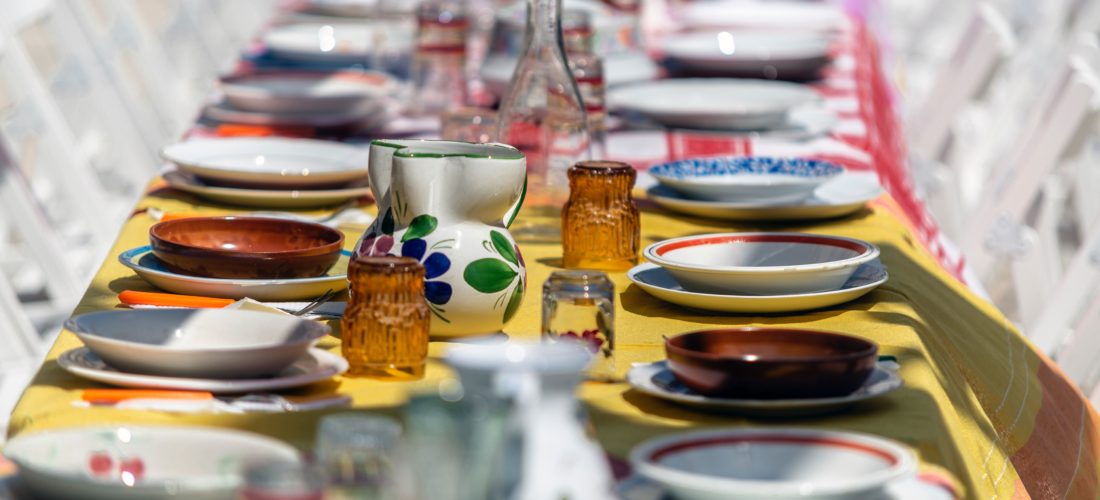Over a month ago I had one of those annoying-but-not-a-big-deal moments with Mormonism. Obviously, living in a mixed faith household means it happens on occasion. When it does, I inwardly roll my eyes and let it go. Not a big deal, it’s just something that comes with the territory.
Except, over this last month I kept thinking back on it. The thought would pop back into my head and I’d have to sigh and roll my eyes again. I guess it wasn’t as small as I originally thought.
Almost six weeks ago we were told to shelter in place. That same week an email came from the stake president to everyone in the stake. I skimmed it, just to know if there were any changes about to impact my family.
It was the usual rhetoric about having faith and being in God’s hands. There was even particular praise for the bishops (but not the Relief Society presidents) and instructions from the general authorities about monthly sacraments. One paragraph, however, caught my eye. I’m going to paraphrase it because I want to keep what little shred of anonymity I have.
Basically, Mr. Stake President urged members to not “idle away in front of the tv, video games, social media, and other unedifying entertainment.” We should all remember to seek after those things which are “honest, true, chaste, benevolent, and virtuous.” Now is especially not the time to sit back.
Perhaps it was because I was coming down from a day of utter exhaustion and stress, but all I could think was “REALLY?? What the fuck do you think I’m doing over here? Do you honestly think everyone is treating this as a vacation?”
It felt like a slap in the face. Nobody I’ve talked with was treating this as a time to relax and take it easy. Nobody was saying “Finally! I can now watch ten hours of Netflix and scroll to the bottom of reddit.” That’s just not reality! Everyone I know was stressed to the max. Everything had turned upside down in the matter of days, if not hours. We’re home, but there’s no way we were relaxing.
Of course, it’s not just this tone deaf message that irked me. Something much deeper within me was touched. When I was a Mormon, I was endlessly busy with the checklist of living the “good Mormon life.” There was always more I should be doing—more praying, more studying the scriptures (not just read them, mind you. I had to STUDY them!), more visiting teaching (now called ministering), and more fulling all my callings. On top of all that, I should make time to regularly attend the temple (at least once a month), organize weekly Family Home Evenings, write in my journal, and do my share of family history work.
Are you exhausted yet? Because I feel exhausted just remembering it all.
It was a never ending stream of “have-to’s” and “I should be.”
I have to read my scriptures.
I should be planning my next lesson.
I have to listen to this conference talk.
I should be at the temple.
This pressure came with weekly reminders every Sunday. Lessons, talks, testimony meeting… Most Sundays I’d come home either feeling reinvigorated to get more done, or feeling like I was failure because I had yet to establish a nightly family scripture reading, do any visiting teaching, and start my family history. All these things had to be done on top of the normal, everyday living tasks most humans do—plus all the things I really wanted to do in my life. Whatever I did was never quite enough, but I needed to do these things. I had been promised again and again that God would bless me and my family. If I didn’t, blessing would be denied us.
Looking back, I think “Is it any wonder that I constantly jumped between overwhelmed, discouraged, and frustrated?” Of course, I never showed those feelings as they were pushed far, far down inside me and what came out was depression. It was always me that was broken, never the system. If only I get my act together and do all the things God wants me to do, then I’d be happy and fulfilled.
It is this part of my past—those memory, ideas, and feelings—that touched me again when I read the stake president’s email. It was also the implication that because church wasn’t happening that meant all the “church things” were also being relaxed. I can only imagine how I would have felt if I read those words while I was still a believing Mormon. On top of the stress and tenseness of everything around me, I would suddenly have a heap of guilt. It wasn’t enough to survive the day, I need to also keep up with all the church things.
Those first few weeks of sheltering in were hard for our family. On top of the fear and anxiety of the situation, we struggled with work schedules, home schooling, canceling major plans, and missing friends. We walked through each day in a half-daze as we bounced between keeping it all together and watching the news. We weren’t “doing much” but each day ended in exhaustion. Our “down time” was bingeing Netflix or playing video games. It was our way to cope and decompress. Were they “edifying?” Probably not. I don’t care, it was what we needed.
Life is busy enough without the “Mormon checklist.” At a pivotal point in my faith crisis, I asked myself “Do you want to be a good person, or a good Mormon?” I laughed at first, thinking “isn’t that the same thing?” But in the silence that followed, I realized that wasn’t true.
To be a good Mormon, I had to check the checklist and follow all the rules. I lived the letter of the law, thinking it would bring me all the happiness I lacked.
To be a good person, I got to decide where to put my energy and time. I could focus on patience, empathy, and kindness for my fellow humankind. I could just “be good” without the feeling I was lacking something. It was enough to be kind, generous, and…well, myself!
When I said, “I want to be a good person!” I suddenly felt a sense of relief. I didn’t have to read my scriptures, pray every day, and do all those Mormon things in order to be considered “good.” As I stopped judging myself on the yardstick of Mormonism, I saw how quick I was able to outgrow it. I no longer needed Mormonism as a measure of my worth.
So, Mr. Stake President, please know that I’m busy and I’m not idling away in “unedifying ways.” My life is filled to the brim. It’s full of the wonder and awe of experiencing who I am and of knowing how powerful I can be. I’m secure in my worth and not the worry of “being enough.” I am doing those things which are most needed, even now during a pandemic. If that involves a stupid amount of mobile games, then so be it!
And the best part? I’m passing those thoughts and ideas onto my children.



